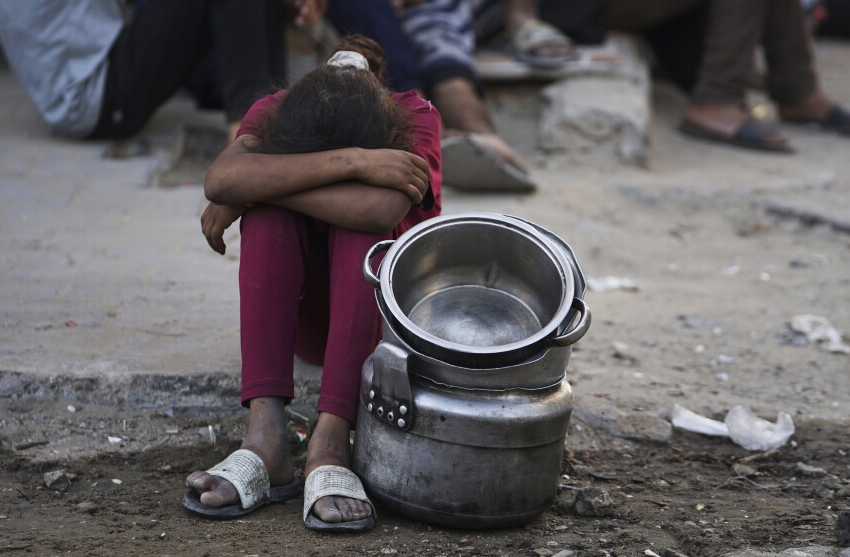The Israeli military on Sunday began a limited pause in fighting in three populated areas of Gaza for 10 hours a day, part of a series of steps launched as concerns over surging hunger in the territory mount and as Israel faces a wave of international criticism over its conduct in the 21-month war.
The military said it would begin a “tactical pause” in Gaza City, Deir al-Balah and Muwasi, three areas of the territory with large populations, to “increase the scale of humanitarian aid” entering the territory. The pause begins every day at 10:00am to 8:00pm local time until further notice, beginning Sunday.
The military also said that it would put in place secure routes for aid delivery and that it carried out aid airdrops into Gaza, which included packages of aid with flour, sugar and canned food.
Food experts have warned for months of the risk of famine in Gaza, where Israel has restricted aid because it says Hamas siphons off goods to help bolster its rule, without providing evidence for that claim. Images emerging from Gaza in recent days of emaciated children have fanned global criticism of Israel, including by close allies, who have called for an end to the war and the humanitarian catastrophe it has spawned.
Israel said the new measures were taking place while it continues its offensive against Hamas in other areas. Ahead of the pause, health officials in Gaza said at least 16 Palestinians were killed in separate strikes.
One strike hit a tent sheltering a displaced family in the Asdaa area, northwest of the southern city of Khan Younis, killing at least nine people, according to Nasser Hospital. The dead included a father and his two children, and another father and his son, the hospital said.
In Gaza City, a strike hit an apartment late Saturday in the city’s western side, and killed four people, including two women, said the Health Ministry’s ambulance and emergency service. Four others were wounded, it said.
Another strike killed a couple and a woman in the central town of Deir al-Balah early Sunday, according to the Al-Aqsa Martyrs hospital. The strike hit a tent close to a desalination plant, it said.
“This (humanitarian) truce will mean nothing if it doesn’t turn into a real opportunity to save lives,” said Dr. Muneer al-Boursh, director general of Gaza’s Health Ministry, who called for a flood of medical supplies and other goods to help treat child malnutrition. “Every delay is measured by another funeral.”
The local pause in fighting came days after ceasefire efforts between Israel and Hamas appeared to be in doubt. On Friday, Israel and the US recalled their negotiating teams, blaming Hamas, and Israel said it was considering “alternative options” to ceasefire talks with the militant group.
Senior Hamas official Mahmoud Merdawi said that Israel’s change of tack on the humanitarian crisis amounted to an acknowledgement that there were starving Palestinians in Gaza and that the move was meant to improve its international standing and not save lives.
He said that Israel “will not escape punishment and will inevitably pay the price for these criminal practices.”
Under international pressure, Israel slightly eased the blockade in May. Since then, it has allowed in an average of 69 trucks a day which, however, is far below the 500 to 600 trucks a day the UN says are needed for Gaza. The U.N. says it has been unable to distribute much of the aid because hungry crowds and gangs take most of it from its arriving trucks.
As a way to divert aid delivery away from the UN’s control, Israel has backed the US-registered Gaza Humanitarian Foundation, which in May opened four centers distributing boxes of food supplies. More than 1,000 Palestinians have been killed by Israeli forces since May while trying to get food, mostly near those new aid sites, the UN human rights office says.
Israel has railed against the UN throughout the war, saying that its system allowed Hamas to steal aid. The UN denies that claim and says its delivery mechanism was the best way to bring aid to Palestinians.
Israel’s retaliatory offensive after Hamas’ attack on October 7, 2023, has killed more than 59,700 Palestinians.


